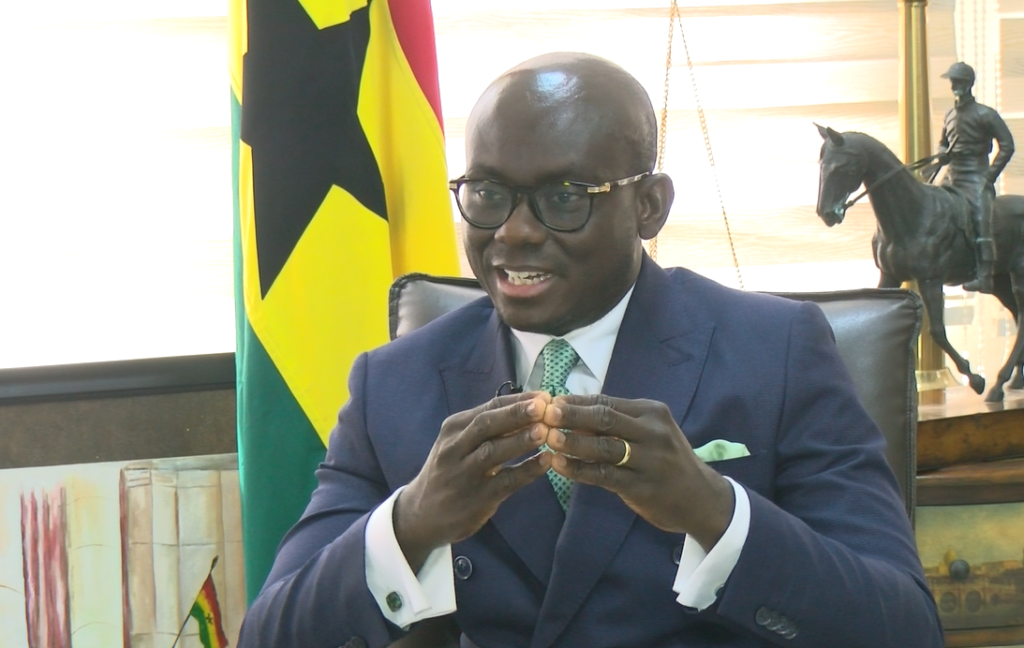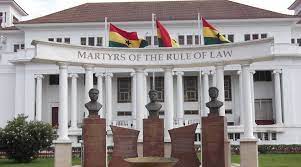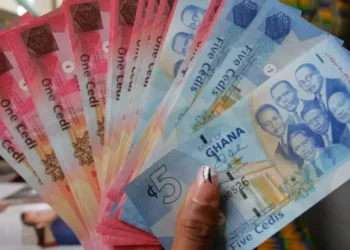The Attorney General and Minister of Justice, Dr. Dominic Akuritinga Ayine, has mounted a robust defence of the President’s referral of a petition seeking the removal of Chief Justice Gertrude Torkornoo to the Council of State.
The learned Attorney General stressed that President Mahama was only discharging a constitutional duty that cannot be impeded by judicial injunction.
Dr. Ayine, who is also legal counsel to the presidency, was responding to questions from journalists following the Supreme Court’s adjournment of two lawsuits filed to challenge the constitutionality of President Mahama’s action.
The lawsuits had called for the court to restrain the President from proceeding with the referral process, which is a preliminary step under Article 146 of the 1992 Constitution for the removal of a Chief Justice.

Rejecting the basis of the suits and criticisms from some quarters of the legal and political establishment, Dr. Ayine stated unequivocally that the Constitution bars any attempt to enjoin the performance of a constitutional or public obligation.
“The law is very clear: you cannot enjoin the performance of a constitutional duty, and what President Mahama is doing is exactly that—performing a constitutional obligation.”
Attorney General and Minister of Justice, Dr. Dominic Akuritinga Ayine,
His remarks come in direct response to arguments made by Godfred Yeboah Dame, a former Attorney General and counsel to a plaintiff in one of the suits, who has insisted that due to the pendency of the case at the Supreme Court, the President must refrain from taking any steps that would amount to acting on the petition until the Court has ruled.

But Dr. Ayine pushed back on that notion, dismissing the former Attorney General’s argument, arguing that it is legally flawed.
“He [the former Attorney General] has filed an application in court. The court is yet to make an order. He is suggesting that because of this, the president must halt the process. But that’s not how constitutional law works”.
Attorney General and Minister of Justice, Dr. Dominic Akuritinga Ayine
Dr. Ayine further clarified that the process initiated by President Mahama is not an arbitrary political move, but a step mandated by the constitution when a petition seeking the removal of a Chief Justice or a superior court judge is submitted.
He emphasised the discharge of the President’s performance of his constitutional duty, and stressed that there is no legal basis for halting it unless the court rules otherwise.
The Supreme Court has since adjourned the hearing of the interlocutory injunction application to May 6, 2025.

According to Dr. Ayine, the adjournment was necessitated by the unavoidable absence of one of the panel members, and not by a lack of interest or commitment from the Attorney General’s Department.
Reacting to his absence in court in the first hearing of the case, he explained that the state attorneys, including himself and his deputy, were heavily engaged in a training program organised by the ECOWAS Court of Justice in Accra—training that had been scheduled well in advance of the court date.
“We simply asked for a new date, which is a routine practice in legal proceedings when counsel are constrained. To interpret our absence as reluctance to proceed with the case is completely unfair and unacceptable.”
Attorney General and Minister of Justice, Dr. Dominic Akuritinga Ayine,
Dr. Ayine was also measured in his response to further probing questions regarding whether he had formally advised President Mahama on how to proceed with the case in light of the pending suits.
“I haven’t spoken with the President yet, and I cannot give a definitive answer as to whether I’ve advised him. The President and the republic are my clients. I will not advise my client publicly.”
Attorney General and Minister of Justice, Dr. Dominic Akuritinga Ayine

His response underlined the delicate nature of the issue and the legal protocols involved, especially given that the petition relates to the possible removal of the sitting Chief Justice, an issue that touches the very core of judicial independence and executive accountability.
Dr. Ayine’s defence of President Mahama’s role suggests that the President is not backing down and is prepared to argue that his actions are rooted in law, not politics.
READ ALSO: Trump Orders Tariff Probe to Curb China’s Mineral Grip


















